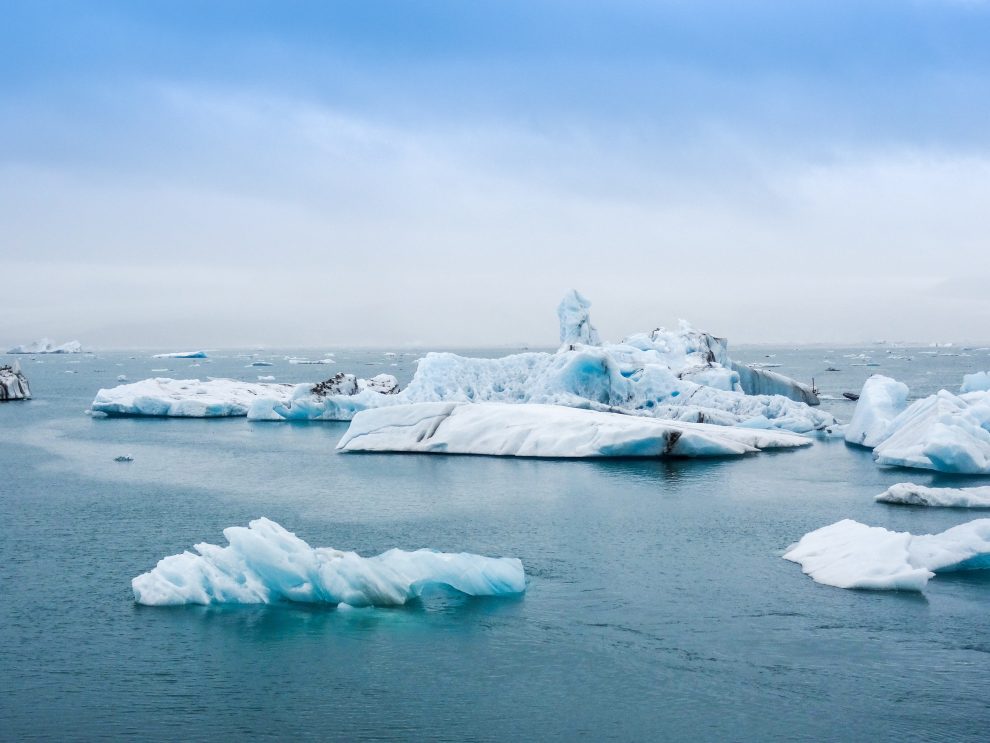Fifty years after the game-changing Second Vatican Council a new generation helps the church respond to today’s signs of the times. Here, Dom Erwin Krautler stresses the importance of paying attention to climate change because of its human cost.
Read more scholars on today’s signs of the times.
The church calls on all people and governments to protect the future of God’s creation by addressing the urgent threat of global warming.
“The climate is going crazy,” the farmers in my diocese tell me. “The rainy season is no longer the rainy season. We sow, but the seeds don’t sprout because the rain does not come. And in the dry season we get rain. Or there isn’t even a drop of rain for months; rivers and creeks dry up; the grass burns; and the cattle die.”
I still remember how in the Amazon region the rainy season used to begin almost punctually every year around Christmas. The farmers cultivated their rice fields and knew that rain was coming. They always looked forward to seeing their fields in just a few days transformed into deep green carpets.
The dry season began in June, and to this day the fires celebrating the summer solstice are on the feast of St. John the Baptist. Although there used to be little rain during the dry season, there was enough occasional rain to keep the forest and meadows and the bushes and grass green.
But a couple of years ago the level of the big rivers sank lower than ever before. Tributaries and creeks dried up, the boats got stuck, and the fish died and lay with their mouths open on the dried-up, cracked river bed. Since then the
world at the Xingu River has not been the same.
For decades scientists have emphasized the critical climate-regulating function of the tropical rain forests. But while the Brazilian environmental agencies claim that deforestation by fires is decreasing—some landowners and big companies that have committed environmental crimes are sentenced to substantial penalties—intensive deforestation continues unabated.
Thousands of square kilometers of tropical rainforest have already been replaced by huge cattle farms. Now Brazil’s biofuel boom is devouring further sections of the rainforest to make room for huge soybean and sugar plantations, further exacerbating global climate change.
More and more roads are being built to exploit new, previously untouched regions. The lumber industry is unscrupulous and prevents reforestation by means of corruption. Mining companies, notorious for inhumane working conditions, human rights violations, and environmental degradation, continue to make astronomical profits.
During the U.N. Summit for Sustainable Development in June in Rio de Janeiro (Rio+20), representatives from 188 countries passed a document titled The Future We Want, which talks about an ecological economy and once again conjures environmental “sustainability.” What’s missing in the final document, however, is concrete measures, plans, or deadlines.
Still Brazil’s President Dilma Rousseff praised Rio+20 as a historic step. Unfortunately, no one knows the direction this historic step is taking. Roussef is not credible on environmental issues because, as minister of energy, she escalated environmentally destructive infrastructure projects and she has now made the energy industry the focal point of Brazilian development.
The Amazon region is slated by the Brazilian government to be developed as the essential “clean” energy source. In the next few years dozens of new big dams are being planned. But of course there is nothing “clean” about this energy source. The Belo Monte dam in our diocese is the showcase example for the striking disregard of human rights and conscious destruction of the world of indigenous peoples, the river residents, and even the city populations.
To make the construction of Belo Monte and the other dams possible, not only will the tropical rainforest have to go. Families who have lived here for decades are being expropriated, robbed of their livelihoods, and chased into poverty. The indios who have made a living by fishing and traditional agriculture are being cut off from water.
Even when it causes the physical and cultural death of the indigenous population, the government wants power for the energy-intensive and environmentally destructive production of aluminum ingots to increase its import revenue.
When Pope Paul VI in his 1967 encylical Populorum Progressio surprised the world with his slogan “Development is the new name for peace,” he wasn’t thinking of the kind of economic growth at all cost that allows a few oligarchies and business people to get filthy rich while intentionally excluding most people and plunging many into poverty. Pope Paul called on all the people of the world to promote development that is based on justice and solidarity.
The definition of development is key. When the free market is seen as the engine of progress and the measure of all things, earth, water, air, and fire will be commodified and subordinated to the rules and powers of the market, multinational companies, and international trade.
But when life in human dignity is the goal and meaning of all development, then development will be geared toward the survival and well-being of all people, including the generations that are coming after us.
The unrelenting pursuit of increasing exports, trade surpluses, and economic growth that exploits the human family and its environment has become a dangerous dead end.
A change in the direction of our thinking and actions is urgent. What is needed is development that is oriented toward the protection and promotion of life and human capacities; toward education, health, security, housing in dignity; and toward environmentally responsible agriculture, stewardship of our water resources, and careful protection of biodiversity.
Averting climate change and saving our planet will require both a change in consciousness and concrete measures that hold all people and countries of the world accountable.
This article appeared as part of a series celebrating the 50th anniversary of the opening of the Second Vatican Council. To read more of today’s scholars on the signs of the times, click here.
Image: Guillaume Falco via Pexels















Add comment